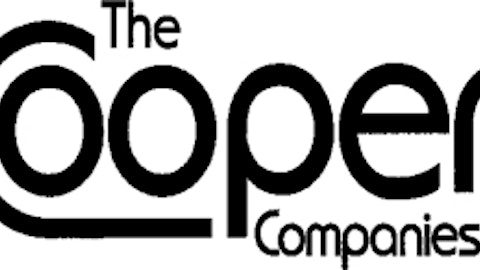The ongoing convergence of the tech and health care industries has yielded some remarkable advances in telehealth, electronic health records, or EHRs, and mobile apps. Yet several companies are going even further by creating “smart pills” — medications that are synchronized to mobile devices after they are ingested.
This idea of edible technology has crossed over from sci-fi to reality to address the troubling fact that over half of all drugs worldwide are prescribed, dispensed, or sold inappropriately, according to the World Health Organization.
The smart pill
Last July, the Food and Drug Administration approved Proteus Digital Health’s ingestible biosensor and its companion patch as the world’s first “smart pill” system, Helius. The pill is embedded with a tiny sensor made from silicon and natural ingredients.
After the pill is swallowed, it uses stomach fluid as a power source to broadcast signals back to its battery-powered companion patch. The data includes vital information such as the time of ingestion, the patient’s heart rate, body temperature, and other activities. That data is then sent to a smartphone app used by physicians to better gauge a patient’s current condition.
Source: Mobihealthnews.com
Prior to FDA approval, Helius was tested for the treatment of mental health, heart conditions, hypertension, and diabetes, according to Proteus CEO Andrew Thompson.
A trio of major backers
Proteus Digital Health has some major investors, including pharma giant Novartis AG (ADR) (NYSE:NVS), medical device bellwether Medtronic, Inc. (NYSE:MDT), and tech giant Oracle Corporation (NYSE:ORCL).
In 2010, Novartis AG (ADR) (NYSE:NVS) invested $24 million in Proteus to license its sensor technology worldwide. Novartis also gained rights related to Proteus’ upcoming oncology, cardiovascular, and clinical development applications for the smart pill system. Novartis AG (ADR) (NYSE:NVS) has used the smart pill technology on a 20-patient study to track the use of its blood pressure drug, Diovan. According to Novartis AG (ADR) (NYSE:NVS), the use of Proteus’ technology improved drug regimen compliance from 30% to 80% after six months. This higher compliance rate could not only increase the quality of care for patients, but also boost Novartis AG (ADR) (NYSE:NVS)’s revenue through higher sales of its drugs.
Medtronic, Inc. (NYSE:MDT)’s interest in Proteus also suggests a strong link between smart pills and telehealth devices. Medtronic, Inc. (NYSE:MDT) currently produces pacemakers that can be monitored remotely via its CareLink Network. It also recently acquired remote monitoring device company Cardiocom to expand its telehealth business. For Medtronic, Inc. (NYSE:MDT), investing in smart pills and remote monitoring solutions is a sound way to diversify from its core business of medical devices, which may suffer from upcoming Medicare cuts.
In May, Oracle Corporation (NYSE:ORCL) made a minority investment in Proteus. The two companies plan to work together in clinical trials to provide clinical investigators with data regarding the efficacy of its smart pill technology. Proteus’ technology will also be integrated into Oracle’s health care IT segment, which has a wide array of services based in its Oracle Health Services Cloud. Boosting the strength of its health care portfolio could help boost Oracle’s presence in the health care IT industry, where it competes with other IT giants like Hewlett-Packard and IBM.
The evolution of camera pills
Just as the smartphone was an evolutionary step up from the digital camera, smart pills represent the evolution of capsule endoscopy — those tiny camera pills that were approved by the FDA more than a decade ago. Camera pills are generally used to record videos for gastrointestinal treatments, but they lack Proteus’ sophisticated sensors.
Given Imaging Ltd. (NASDAQ:GIVN), a major manufacturer of camera pills, recognized this market shift and acquired SmartPill Corporation’s Smart Pill GI Monitoring System last October for $6 billion. The SmartPill uses sensors to measure pH levels, pressure, and temperature in the gastrointestinal tract. It can also measure total gastrointestinal transit times to better evaluate disorders like gastroparesis and constipation.
Demand for Given Imaging Ltd. (NASDAQ:GIVN)’s pill technologies is rising; last quarter, the company reported that earnings and revenue rose 70.7% and 11.1%, respectively, from the prior-year quarter. Shares are up more than 30% over the past 12 months.
A Foolish final thought
Smart pills represent a major point of convergence for the tech and health care industries. These camera pills that have evolved into full-featured medical sensors could significantly improve patient adherence to medications and better measure the effects of those medications in real time.
With companies like Novartis AG (ADR) (NYSE:NVS), Medtronic, Inc. (NYSE:MDT), and Oracle supporting this technology, smart pills could soon join telehealth, EHRs, and mobile apps as the next big thing in the booming health care IT industry.
The article Will Smart Pills Revolutionize Health Care? originally appeared on Fool.com and is written by Leo Sun.
Leo Sun has no position in any stocks mentioned. The Motley Fool owns shares of Medtronic and Oracle.
Copyright © 1995 – 2013 The Motley Fool, LLC. All rights reserved. The Motley Fool has a disclosure policy.





